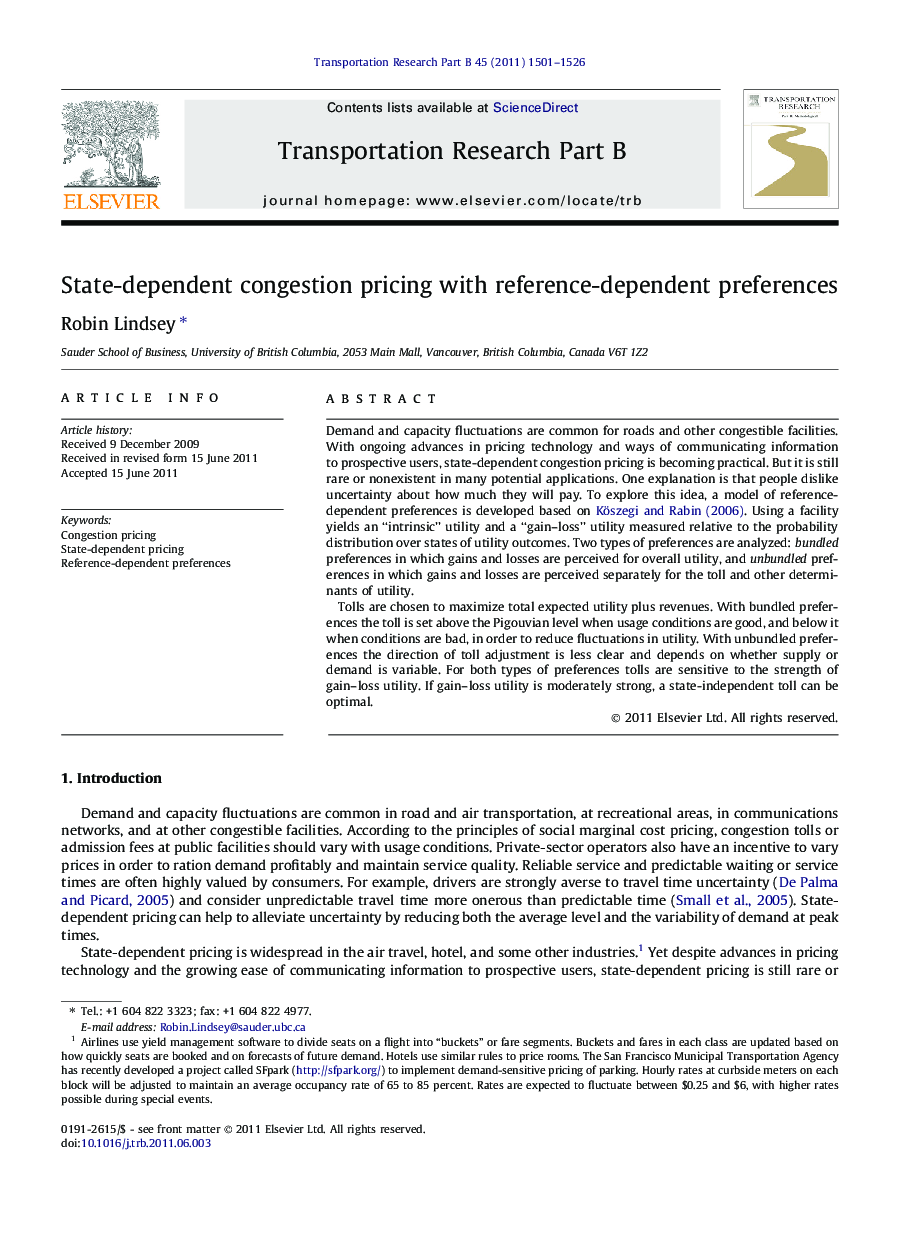| Article ID | Journal | Published Year | Pages | File Type |
|---|---|---|---|---|
| 1132303 | Transportation Research Part B: Methodological | 2011 | 26 Pages |
Demand and capacity fluctuations are common for roads and other congestible facilities. With ongoing advances in pricing technology and ways of communicating information to prospective users, state-dependent congestion pricing is becoming practical. But it is still rare or nonexistent in many potential applications. One explanation is that people dislike uncertainty about how much they will pay. To explore this idea, a model of reference-dependent preferences is developed based on Köszegi and Rabin (2006). Using a facility yields an “intrinsic” utility and a “gain–loss” utility measured relative to the probability distribution over states of utility outcomes. Two types of preferences are analyzed: bundled preferences in which gains and losses are perceived for overall utility, and unbundled preferences in which gains and losses are perceived separately for the toll and other determinants of utility.Tolls are chosen to maximize total expected utility plus revenues. With bundled preferences the toll is set above the Pigouvian level when usage conditions are good, and below it when conditions are bad, in order to reduce fluctuations in utility. With unbundled preferences the direction of toll adjustment is less clear and depends on whether supply or demand is variable. For both types of preferences tolls are sensitive to the strength of gain–loss utility. If gain–loss utility is moderately strong, a state-independent toll can be optimal.
► State-dependent congestion pricing is still rare in many potential applications. ► One explanation is that people dislike uncertainty about how much they will pay. ► This paper explores the idea by assuming users have reference-dependent preferences. ► Gains and losses for congestion and toll paid may be perceived separately or together. ► If gain–loss utility is moderately strong, a state-independent toll can be optimal.
